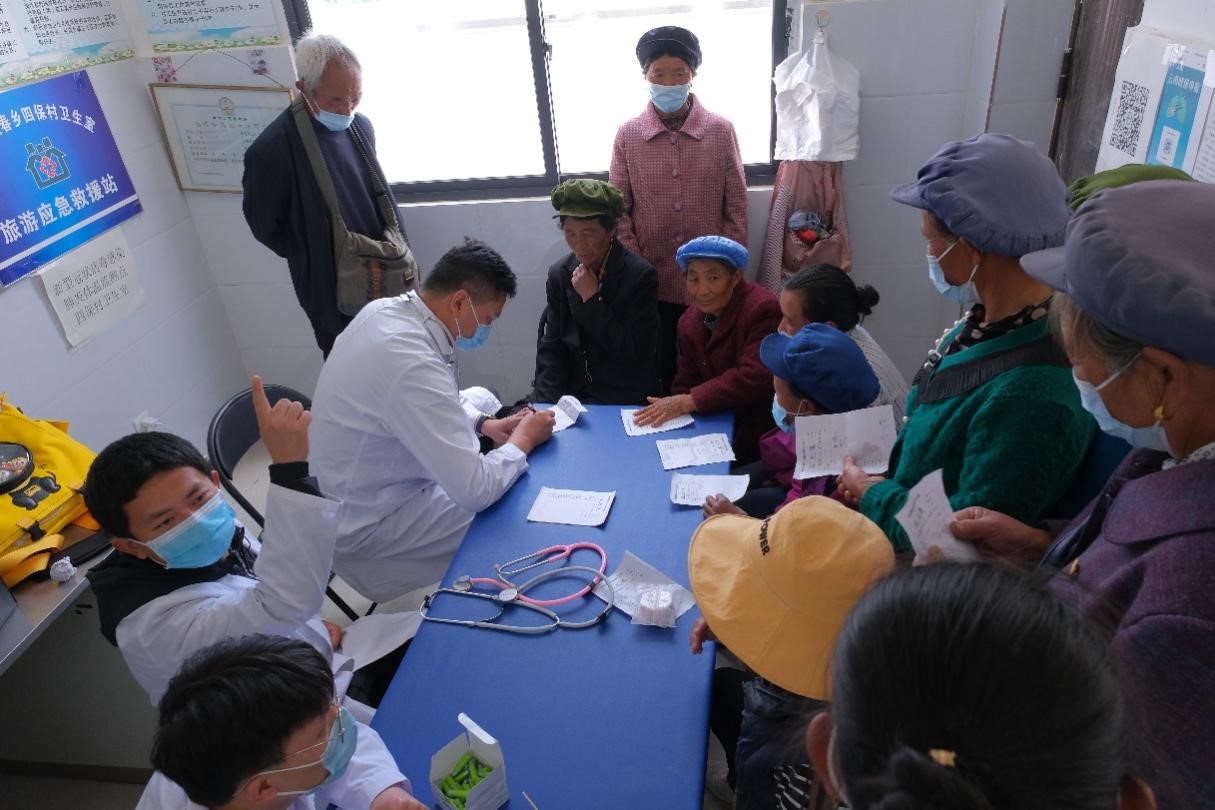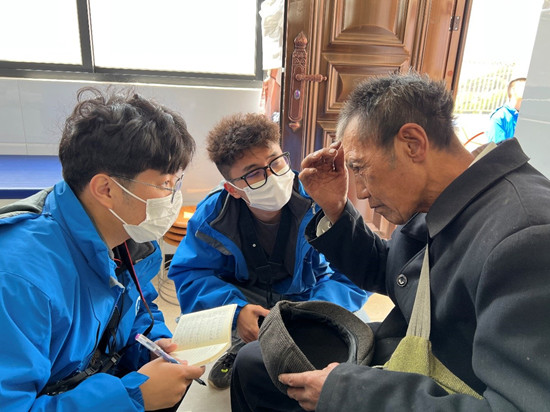Yunnan University aids rural vitalization through medical care
Yunnan University, the Commission for Discipline Inspection and Supervision of Diqing Tibetan autonomous prefecture in Yunnan province, and the prefecture's Yongchun township recently signed a cooperation agreement on a pilot project to provide telemedicine access in villages.
The agreement makes full use of Yunnan University's medical expert think tank to help rural villagers in remote mountainous areas see doctors more easily.
On April 24, 22 teachers and students from Yunnan University's medical assistance team drove 11 hours to six villages in Yongchun township. With the support and cooperation of five expert doctors from the Affiliated Hospital of Yunnan University who visited Diqing prefecture to aid rural vitalization, more than 40 rural doctors were trained and more than 220 villagers were treated in-person.

The team provides free clinical services for villagers at the Sibao Village Health Center. [Photo/ynu.edu.cn]
During the 5-day practice investigation, the team sent digital medical village access equipment to six villages to complete installation work and train local village doctors to use the equipment.

The team conducts a questionnaire survey on the medical status of the township by talking to a villager. [Photo/ynu.edu.cn]
At the same time, the team carried out more than 200 free clinical services, publicity events, and medical status questionnaires.
The promotion of the medical assistance remote project has been well-received by the local government, media, doctors and villagers.
Since the medical assistance project was launched in 2016 at Yunnan University, it has obtained more than 10 patents, soft works and other achievements.
The project consists of more than 250 doctor service teams and more than 270 college student service teams. It covers and connects 2,024 natural villages in four cities and five counties in Yunnan. Additionally, more than 1,500 consultations, more than 80 remote lectures, and more than 1.7 million villagers were served.
Moving forward, the project will expand its service area and service beneficiary groups through the internet, cloud computing, big data, artificial intelligence and other new-generation information technologies. The project will also extend to other provinces in China and countries and regions in South and Southeast Asian.
All rights reserved. Presented by China Daily. 滇ICP备12004993号-2








